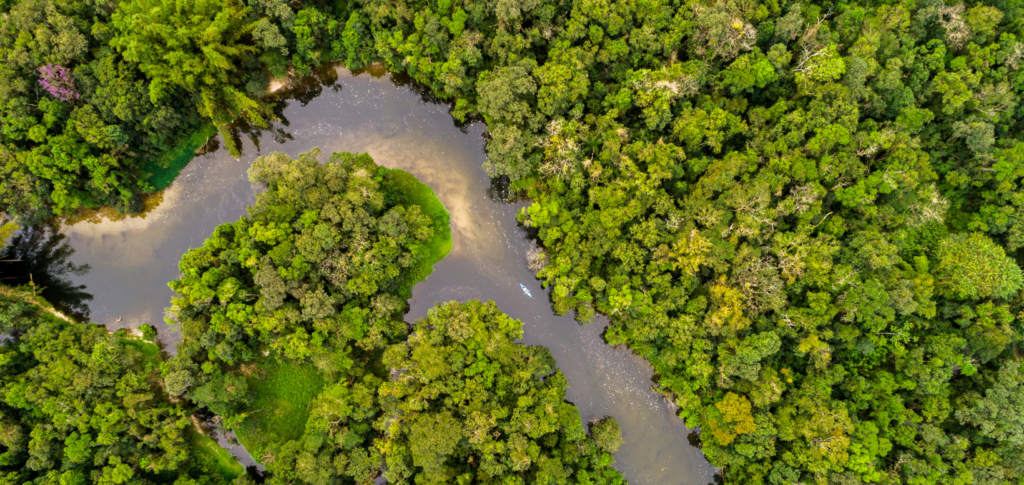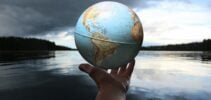With an extension of approximately 421 million hectares, the Amazon represents a third of the world's tropical forests. The region is responsible for several climatic processes, such as evaporation and transpiration from the forest, which help maintain climate balance and the maintenance of freshwater stocks. Furthermore, it houses more than half of the biodiversity the planet.
ADVERTISING
Data from the Biodiversity Extinction Risk Assessment System (Salve), from the Chico Mendes Institute for Biodiversity Conservation (ICMBio), show that 224 species of fauna in the Amazon are suffering some type of threat and at least one has already been considered extinct. There are 139 species categorized as “vulnerable”; 48 “in danger”; and 38 “critically endangered”.
Among the animals at risk are the Amazon manatee, giant anteater, jaguar, conure and tapir, classified as “vulnerable”. Fish species, such as Acari, are “critically endangered”.
For the general coordinator of the Indigenous Organizations of the Amazon, (Coiab), Toya Manchineri, the Amazon Day It is about struggle and reflection. Coordinating more than 70 indigenous organizations, Toya stated that, this year, there is still not much to celebrate because of the advance of deforestation, illegal mining and threats to indigenous and traditional peoples under the Jair Bolsonaro government.
ADVERTISING
“It's a special day of struggle and there's nothing to celebrate, especially if we take the data produced by the research agency, which is from the last government. There is a mass destruction of the forest, the biome and a growing wave of murders and persecution of indigenous peoples, quilombolas and extractivists,” the indigenous leader told Agency Brazil. “Day 5 is for us to reflect on how we can stop these murders and the persecution of the people who live in the forest. So, it is a moment of reflection and not celebration”, she highlighted.
A similar assessment is made by the socio-environmental policy and law advisor at the Instituto Socioambiental (ISA) Adriana Ramos. She highlights that, despite recent data showing a significant drop in deforestation in the first seven months of the year, there is still much to be done. Data from the federal government show a reduction in deforestation of 42% in the Amazon biome during this period. In July, the drop was 66%, in August the expectation is that it will have remained at a similar level.
“Let's just say that we don't have much to celebrate because there are a series of challenges that we need to face and that remain very far away. The Amazon is a large part of Brazil and the country needs to give it the importance it has,” the environmentalist told Agency Brazil.
ADVERTISING
Adriana also cited the increase in organized crime in the region and the need for policies aimed at local populations.
“It is necessary to recognize that violence and organized crime have grown a lot in the region. There are still people living in Amazonian cities, demanding attention and the creation of development opportunities. At the same time, there are many threats to traditional territories, indigenous lands, conservation units that need to be addressed so that these areas, which symbolize the richest the Amazon has in terms of biodiversity and combating the climate crisis, are more valued”, he stated.
Another warning is about the advancement of large infrastructure projects in the region, such as the paving of BR-319, built by military governments in the 70s, and the Pacific highway. For ISA's policy and socio-environmental law advisor, these projects have an immense impact on the deforestation process in the region, as they can generate an increase in the circulation of land grabbers and illegal loggers in the region, in addition to not bringing concrete benefits to residents.
ADVERTISING
One of the main concerns is that with the continuation of projects like these, combined with deforestation, illegal mining, and land grabbing for pasture, the Amazon could reach the point of no return. The term is used by experts to refer to the moment when the forest loses its ability to self-regenerate, due to deforestation, degradation and global warming, thus leading to the process of desertification.
“These are projects that will have an immense impact and are not part of a development strategy for the region. We need to think about economic projects that value the area, the environmental services generated from the sustainable use of the forest and that will strengthen the best that the Amazon has to offer at this moment, which are the conditions for facing the climate emergency. We will only be able to maintain this if we avoid the so-called point of no return, which means stopping deforestation and the loss of biodiversity.
The Coiab coordinator highlights that these projects are not designed together with the populations that inhabit the region. Toya Manchineri cites monoculture as one of the activities that has a major impact on deforestation and agrarian conflicts in the Amazon.
ADVERTISING
“Economic projects lead to many complications for indigenous peoples. Firstly, they are not thought of together with the people who live in the Amazon. They often come with an external view of development, which often does not reflect the local reality. Then we have the issue of mining, which is quite bad, it destroys the forest, destroys social organization and leaves disease in indigenous territories. So, these are mining and monoculture projects that destroy the forest,” he said.
Toya also criticized the possibility of approving the time frame thesis for the demarcation of indigenous lands, especially in the Amazon, and said that if the measure is approved, there will be an intensification of threats to people and the loss of rights.
“The time frame is harmful to indigenous people, as it imposes limits on the demarcation of territories. If it is approved, many of our territories will be revised, many of our relatives, who do not have their territory demarcated, will lose and, most likely, suffer great pressure from invaders. Many deaths will occur”, he denounced.
For ISA, the approval of the time frame by the Federal Supreme Court shows a distorted interpretation of the Federal Constitution, which could contribute to the “land grabbing industry”. Adriana recalled that indigenous and traditional people are the ones who kept the forest standing.
“We have forests because of the traditional way of life of these populations, therefore these people are of central importance and their management and agricultural practices are responsible for keeping the forest standing. It is impossible to imagine a future with standing forests in the Amazon without indigenous and traditional peoples playing a leading role in this process,” he said.
Festival
As a way of drawing attention to the defense of the Amazon, five Brazilian cities, starting with Santarém (PA), will host cultural festivals and artistic. The first was held last Saturday (2). This will be the second edition of Festivals Dia da Amazônia. More than 13 organizations and more than 50 artists are directly involved in the national mobilization of the event, throughout the month of September. The festival will also feature protests against the time frame thesis.
The tradition began last year to celebrate the date, established by law in 2007, covering festivals and various activities that will extend throughout the country until the 30th. These actions include workshops, plays, sports and educational activities , tree planting, exhibitions and film screenings. They all focus on the theme of protecting and enhancing the Amazon.
One of the actions this year is the mobilization to collect 1,5 million signatures from Brazilian citizens who have a valid voter registration card, to file the Popular Initiative Bill (Plip) which requires the allocation of 57 million hectares of public land undesignated, that is, areas of the Union that do not yet have a specific purpose and are the target of accelerated deforestation and land grabbing.
The proposal is that these lands can be demarcated as conservation units (UCs), indigenous lands, quilombola territories or destined for traditional communities – people who truly conserve the Amazon.
(With Brazil Agency)
Read also





